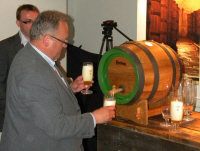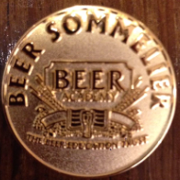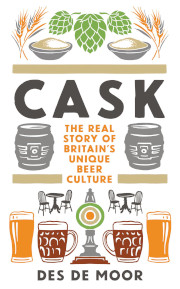European Beer Bloggers Conference 2011, Top Tastings 2011
ABV: 4.4%
Origin: Plzeň, Plzeňský kraj, Czech Republic
Website: www.prazdroj.cz

Plzeňský Prazdroj's head brewer Václav Berka serves up his Kvasnicový at the European Beer Bloggers Conference, London, May 2011. Pic: Reuben Gray, www.taleofale.com
The second word in the name of this famous Bohemian brewery — Plzeňský Prazdroj in Czech, Pilsner Urquell in German — means ‘original source’, and with some justification. The clear golden hop-accented lager that eventually became the most recognised beer style in the world was first perfected here in 1842. The term ‘Pils(e)ner’ literally means ‘of Plzeň’, from the city’s German name Pilsen.
While the rest of the world did a good job of producing ever more degraded imitations, Pilsner Urquell long remained a beacon of excellence, but has faced accusations of loss of character since current owner SAB-Miller took over and streamlined the brewing process. Personally, while I’ve recognised its principal product as a superior example of a dry golden lager at a relatively low strength for the style of 4.4% ABV, the regularly available filtered and pasteurised version impresses me less than a number of other mainstream golden Czech lagers.
But here is a special treat that really does do justice to the brewery’s pedigree as the original source. Some pubs in the Czech republic, including a number in Prague, stock an unpasteurised draught version of Prazdroj known as tankový which is notably superior. This kvasnicový version is rarer still, usually found only on the brewery tour and in one or two specially favoured outlets in Plzeň. It’s very fresh draught beer that’s been filtered then reseeded with fresh yeast and dosed with unfermented wort so it can be served draught under its own CO2 pressure — which, if you’re not a purist about prefiltering, pretty much counts as cask beer.
The brewery’s own head brewer Václav Berka treated delegates to this delight at the European Beer Bloggers Conference in London in May 2011, with supplies that were only a few days old. Some of it was from aluminium but some came from one of the brewery’s own wooden barrels, tapped with due theatricality and a certain amount of splashing by Václav himself.
This lively and very hazy blond beer had a very fine and generous foamy white head. Hops, from Žatec of course, were obvious on a rich and fecund aroma with a farmyard note. The palate was crisp and immediately hoppy and bitter, quite steely at first and tingling on the tongue over a notably firm and very lightly and delicately honeyed malt. A burry bitterish finish lingered with firmly resinous lettuce and pepper, moreishly balanced by the fine malt beneath.
A fellow delegate, Flemish master beer sommelier Marc Stroobandt, commented that it was a great example of the classic Czech pils profile, which should go bitter — malty — bitter in the mouth, rather than the milder German (and world) interpretation that goes malty — bitter — malty. Certainly the upfront hopping was remarkable, particularly since the bitterness remained so well controlled. It’s a shame the beer doesn’t appear more commonly in this form as it could seriously raise the bar of lager appreciation.
Read more about this beer at ratebeer.com: http://www.ratebeer.com/beer/pilsner-urquell-kvasnicovy/44956/





Man, what a way to make everyone jealous! 🙂
Regarding your last paragraph, I’ve never heard, say, Jever or Flensburger accused of not being bitter enough… in other words, there’s quite a variety in Geman pilsners, though I would be surprised if any of them reached the heights of unfiltered, unpasteurized Urquell — it’s called “original source” for a reason, after all.
Definitely agree with you about Jever, Gerrit, but it was a generalisation — perhaps ‘Bavarian pilsners’ would have been more accurate. It really was quite remarkable the way the beer was bitter in the mouth right from the start.